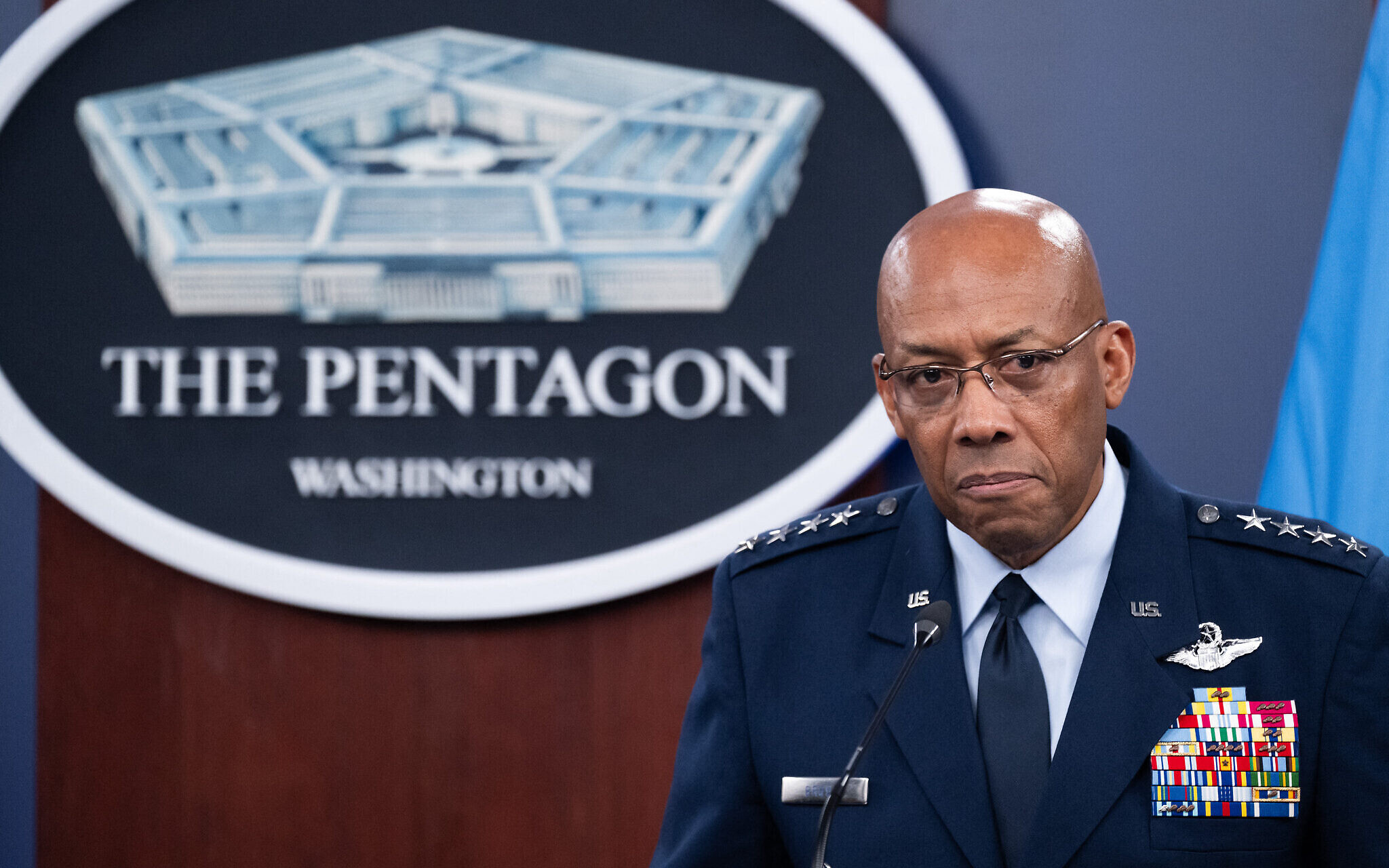
Exclusive: High-ranking U.S. general embarks on an unexpected Middle East excursion amid Iran’s imminent threat
The senior U.S. general initiated an unexpected visit to the Middle East on Saturday in order to deliberate on strategies to prevent any further escalation in tensions that could potentially escalate into a more extensive conflict. This occurred in anticipation of a potential Iranian attack on Israel.
Chairman of the Joint Chiefs of Staff, Air Force General C.Q. Brown, initiated his journey in Jordan and has announced that he will also visit Egypt and Israel in the near future to gain insight from military leaders.
The United States is currently in the process of negotiating an armistice between Israel and the Palestinian militant group Hamas in Gaza, which, according to Brown, would “help bring down the temperature” if it were to be successfully concluded.
“At the same time, as I talk to my counterparts, what are the things we can do to deter any type of broader escalation and ensure we’re taking all the appropriate steps to (avoid) … a broader conflict,” Brown stated to Reuters prior to his arrival in Jordan.
U.S. President Joe Biden’s administration has been endeavoring to mitigate the consequences of the ongoing conflict between Hamas and Israel in Gaza, which is currently in its eleventh month. Israel and Lebanon’s Iranian-backed Hezbollah movement have engaged in border confrontations, and Yemen’s Houthis have launched attacks on Red Sea shipping. Additionally, the conflict has resulted in the destruction of vast areas of Gaza.
Meanwhile, Iran-aligned militias have attacked U.S. forces in Jordan, Iraq, and Syria.
To protect against significant new attacks by Iran or its allies, the U.S. military has been increasing its presence in the Middle East in recent weeks. The Abraham Lincoln aircraft carrier strike group has been deployed to the region to replace the Theodore Roosevelt carrier strike group.
In addition, the United States has dispatched an Air Force F-22 Raptor squadron to the region and has deployed a cruise missile submarine.
“We implemented supplementary capabilities to prevent a more extensive conflict and to safeguard our forces in the event of an attack,” Brown stated, emphasizing that the protection of American forces was “of the utmost importance.”
Iranian Response
Iran has threatened to respond severely to the assassination of Hamas leader Ismail Haniyeh, which occurred during his visit to Tehran late last month and was attributed to Israel. As of now, Israel has not verified or denied its involvement.
In response to Israel’s assassination of a senior Hezbollah commander in Beirut last month, Hezbollah has also issued a threat.
Although Iran has not publicly disclosed the intended target of its eventual response to the Haniyeh assassination, U.S. officials are intently monitoring for any indications that Iran will follow through on its threats.
“We stay postured, watching the (intelligence) and force movements,” according to Brown.
The official IRNA news agency reports that Iran’s new Foreign Minister, Abbas Araqchi, informed his French and British counterparts in telephone conversations on Friday that his country had the right to retaliate.
Iran launched a bombardment of hundreds of drones, cruise missiles, and ballistic missiles at Israel on April 13, two weeks after two Iranian generals were slain in a strike on Tehran’s embassy in Syria. The missiles caused damage to two air bases. Israel, the United States, and other allies were able to eliminate nearly all of the armaments before they reached their intended destinations.
Brown declined to speculate on the potential actions of Iran and its allies, but expressed his desire to engage in a dialogue with his Israeli counterpart regarding various scenarios.
“Particularly, as I engage with my Israeli counterpart, how they might respond, depending on the response that comes from Hezbollah or from Iran,” Brown explained.
Israeli tallies indicate that the current conflict in the Gaza Strip commenced on October 7, 2023, when Hamas gunmen invaded Israeli communities, murdering approximately 1,200 individuals and abducting approximately 250 detainees.
Israel’s military campaign has since resulted in the displacement of nearly all of the 2.3 million residents of the Palestinian enclave, resulting in the deaths of at least 40,000 individuals and the emergence of fatal starvation and disease, as reported by Palestinian health authorities.
All Categories
Recent Posts
Tags
+13162306000
zoneyetu@yahoo.com



